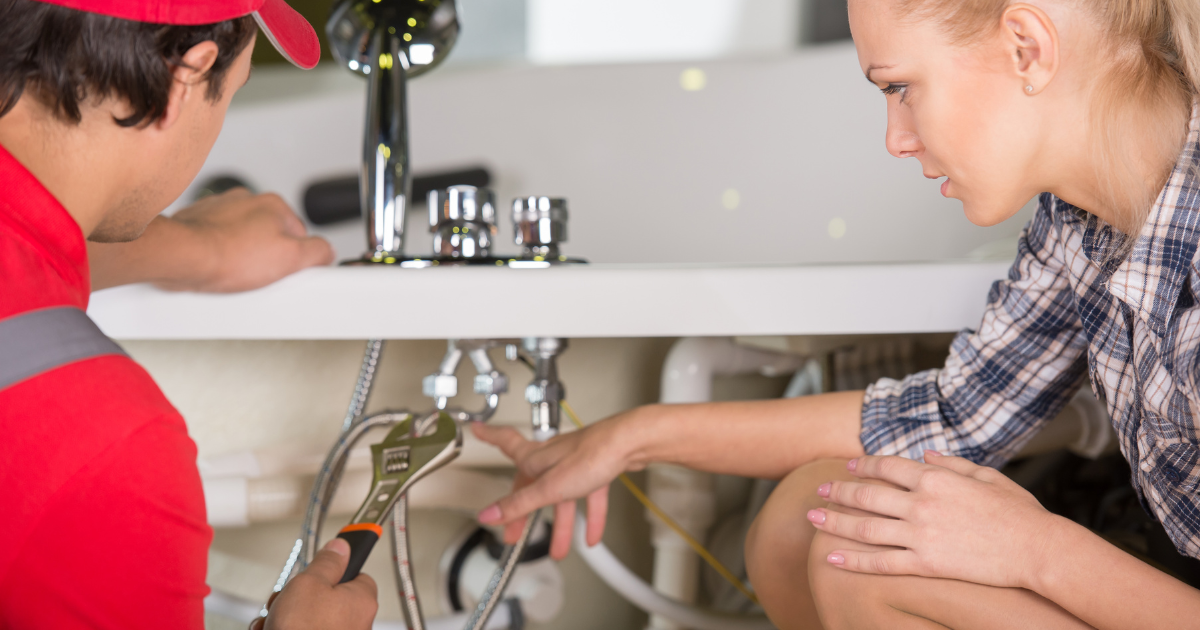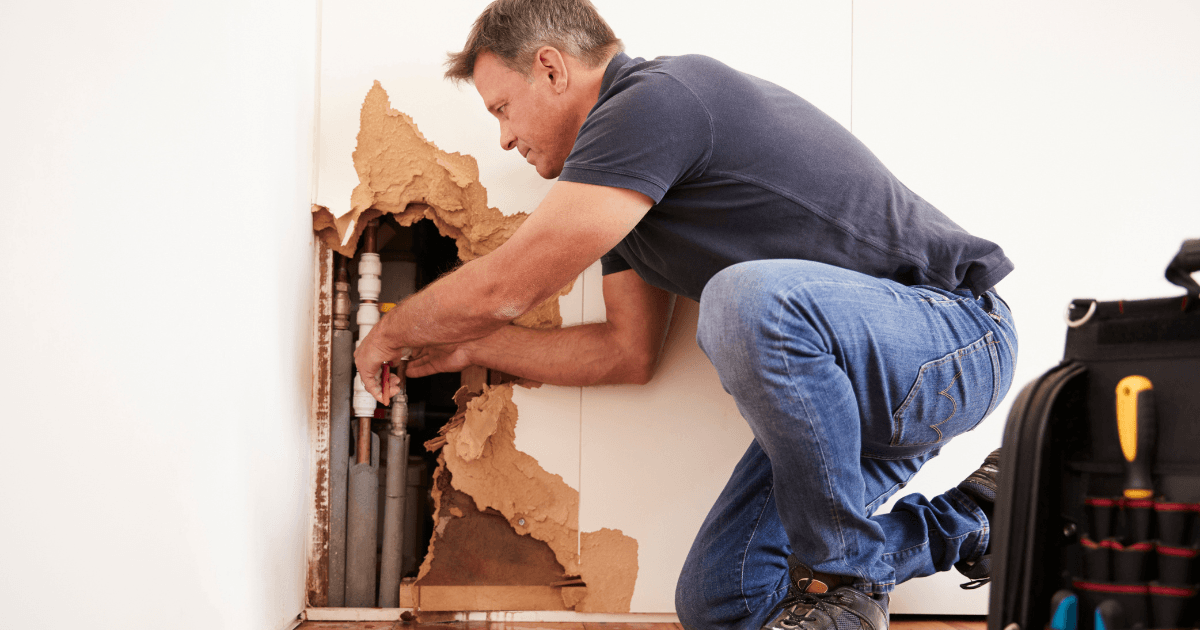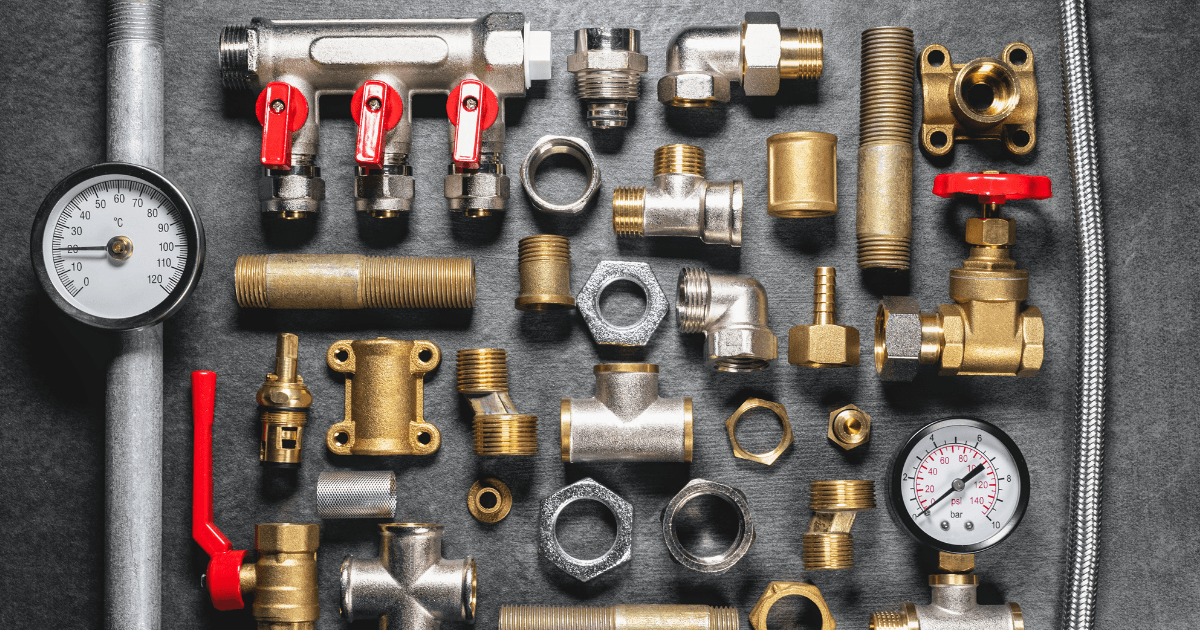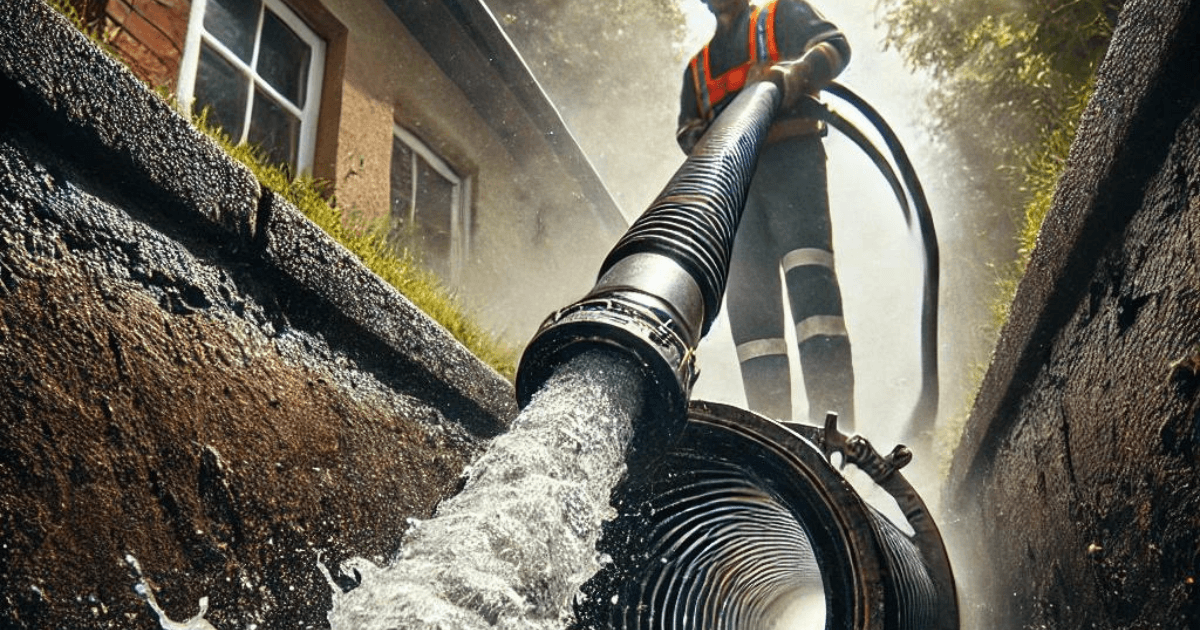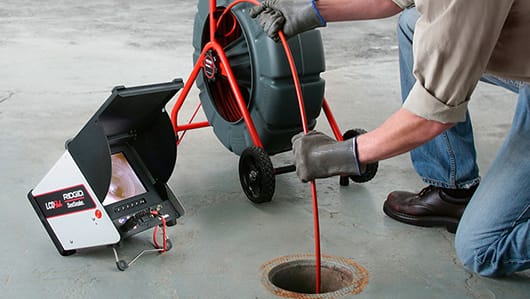Pipes are the unsung heroes of any household infrastructure. They carry water and waste, enabling the seamless operation of daily tasks like cooking, cleaning, and heating. Yet, as essential as they are, pipes are often neglected until something goes wrong—an approach that can be financially devastating. Water damage, mold, and emergency plumbing repairs can cost homeowners thousands of dollars. However, regular pipe maintenance is not just about averting disaster; it’s a way to enhance your home’s efficiency, protect your investment, and save money in the long run.
The Core Function of Pipes: Understanding the System
At its most fundamental level, a plumbing system is designed to move water and waste efficiently. Pipes are subjected to constant pressure, temperature fluctuations, chemical exposure, and material degradation over time. If we distill the primary cause of pipe failure down to its core, we find three fundamental vulnerabilities: corrosion, clogs, and pressure stress. Each of these issues affects the lifespan of the pipes and impacts the overall health of the plumbing system.
Most pipe maintenance practices focus on reacting to these problems—fixing leaks, clearing blockages, or replacing sections of piping once they’ve already failed. But what if we shifted the focus to prevention? Instead of addressing the symptoms, we can focus on strengthening the system itself. By addressing the vulnerabilities directly, you can prolong the life of your plumbing, conserve water, and avoid costly repairs.
Prevent Corrosion: The Slow, Silent Killer of Plumbing
Corrosion is one of the most common causes of pipe failure, particularly in older homes with copper, iron, or galvanized steel pipes. Corrosion occurs when the metal in the pipes reacts with oxygen and other substances in water, causing rust, scaling, and eventual leaks. This degradation weakens the pipe over time, making it more susceptible to leaks or bursts.
Actionable Tips:
- Use a Water Softener: Hard water, rich in minerals like calcium and magnesium, accelerates corrosion. Installing a water softener reduces the buildup of minerals in your pipes, minimizing the corrosive effects on plumbing over time.
- Check Your pH Levels: Ensure your water’s pH level is balanced. Water that is too acidic (below 6.5 pH) can cause copper or lead pipes to corrode faster, whereas water that’s too alkaline (above 8.5) can result in scaling. Invest in a simple pH test kit or consult your water utility provider to understand your water’s chemistry.
- Replace Aging Pipes with Corrosion-Resistant Materials: While copper is the standard, consider upgrading to more modern, corrosion-resistant materials like PEX piping. PEX is flexible, highly durable, and immune to rust or scaling.
Combat Clogs: Keeping Water Flow Smooth and Steady
Clogs are one of the most common plumbing problems homeowners face, often resulting in costly repairs when left untreated. Clogs can lead to increased pressure in the pipes, which in turn causes stress, leaks, or bursts. Clogs generally form due to hair, grease, soap scum, and debris accumulating over time. To maintain a healthy system, it’s essential to combat clogs before they form.
Actionable Tips:
- Regularly Clean Drains with Non-Chemical Methods: Chemical drain cleaners can corrode pipes and cause long-term damage. Instead, opt for natural solutions like pouring a mixture of baking soda and vinegar followed by hot water down your drains every month. This helps break down organic matter without damaging the pipes.
- Install Drain Screens: Simple yet effective, drain screens catch hair, soap scum, and debris before they enter your plumbing system. Regularly clean the screens to prevent buildup.
- Be Mindful of What You Flush: Avoid flushing items that aren’t biodegradable, such as wipes, cotton balls, or paper towels. Even “flushable” wipes don’t break down as easily as toilet paper, leading to blockages.
Monitor Water Pressure: The Silent Stressor
Water pressure, while necessary for efficient water flow, can become a hidden stressor when it’s too high. Excessive pressure places stress on pipes, joints, and fixtures, eventually leading to leaks or even burst pipes. Ideal water pressure for most homes ranges between 40 to 60 psi (pounds per square inch).
Actionable Tips:
- Install a Water Pressure Regulator: A regulator ensures that water pressure remains within the optimal range, protecting your pipes from excessive force.
- Test Your Water Pressure Regularly: Use a pressure gauge to check your water pressure periodically, especially if you’ve noticed issues like banging pipes (water hammer) or leaks around joints. If the pressure is too high, adjust the pressure-reducing valve on your main water supply line.
- Relieve Pressure in Old Pipes: In older homes with aging pipes, high pressure can hasten leaks and bursts. Reducing water pressure, even slightly, can prolong the life of these pipes.
Proactively Insulate Pipes: Protect Against Freezing
In colder climates, frozen pipes are one of the most common causes of plumbing disasters. When water inside the pipes freezes, it expands, causing pipes to crack or burst. This results in expensive repairs and severe water damage.
Actionable Tips:
- Insulate Exposed Pipes: Use foam insulation on pipes located in unheated areas, such as garages, basements, crawlspaces, or attics. Foam pipe covers are affordable and easy to install.
- Let Faucets Drip During Cold Snaps: In extremely cold weather, allowing faucets to drip slightly can prevent pressure buildup, reducing the chances of frozen pipes.
- Seal Cracks in Walls and Foundations: Drafts and cold air can seep in through cracks, freezing nearby pipes. Seal these gaps to keep pipes in warmer environments.
Leverage Smart Technology for Plumbing Efficiency
With advancements in smart home technology, maintaining your plumbing system no longer requires manual monitoring alone. Smart water monitors and leak detection systems have revolutionized how homeowners can proactively manage their plumbing.
Actionable Tips:
- Install a Smart Water Monitor: Devices like Flo by Moen or Phyn monitor your entire home’s water usage in real time, detecting abnormalities that may indicate leaks or excessive pressure. These systems can alert you via smartphone apps and, in some cases, automatically shut off the water supply in an emergency.
- Place Moisture Sensors in High-Risk Areas: Smart moisture detectors placed under sinks, near water heaters, and around washing machines can notify you when leaks occur in vulnerable areas. By catching leaks early, you prevent water damage from escalating.
- Invest in Smart Leak Detectors: Leak detection systems are becoming more accessible, giving homeowners peace of mind and saving money on future repairs by identifying issues before they turn into emergencies.
Long-Term Upgrades: Future-Proofing Your Plumbing System
As we look toward the future of home maintenance in 2024 and beyond, it’s crucial to think about long-term investments in your plumbing system. While some upgrades may require initial costs, they can save you money over the lifetime of your home by reducing maintenance needs and improving efficiency.
Actionable Tips:
- Replace Galvanized Steel Pipes: Many older homes still have galvanized steel pipes, which corrode over time. Replacing them with modern materials like PEX or copper will significantly reduce the risk of leaks.
- Install Water-Efficient Fixtures: Low-flow toilets, showerheads, and faucets can reduce your water consumption by up to 30%, lowering your water bill and minimizing the wear on your plumbing system.
- Tankless Water Heaters: Switching to a tankless water heater provides hot water on demand, reducing energy consumption and eliminating the risk of leaks associated with traditional tank-based heaters.
7. Emergency Planning: Prepare for the Worst, Prevent the Damage
No matter how well-maintained your plumbing system is, emergencies can still occur. Having an emergency plan in place can reduce damage and save money if a major issue arises.
Actionable Tips:
- Know Where Your Shutoff Valve Is Located: In the event of a major leak or burst pipe, shutting off the water supply immediately can prevent extensive damage. Make sure every household member knows where the main shutoff valve is.
- Have Emergency Plumber Contact Information Handy: In case of an emergency, having a trusted plumber on speed dial can make all the difference. Research local emergency plumbers and keep their contact information accessible.
Conclusion: Redefining Plumbing Maintenance in 2024
Pipe maintenance, at its core, is about understanding the vulnerabilities in your home’s plumbing system and addressing them before they lead to costly repairs. By applying first principles thinking—identifying the fundamental causes of pipe failure and implementing preventive measures—you can significantly extend the life of your plumbing and save thousands in the process. In 2024, leveraging modern technology, performing routine maintenance, and making strategic upgrades will ensure your home remains efficient, water-wise, and disaster-free.
Through small, consistent efforts—like using water softeners, monitoring pressure, and installing smart leak detectors—you can take full control of your home’s plumbing system, turning pipe maintenance from a reactive chore into a proactive investment. Yourthrough small, consistent efforts—like using water softeners, monitoring pressure, and installing smart leak detectors—you can take full control of your home’s plumbing system, turning pipe maintenance from a reactive chore into a proactive investment. Your
FAQ: Pipe Maintenance Tips to Save You Money in 2024
1. How often should I perform maintenance on my plumbing system?
You should inspect your plumbing system at least once a year. This includes checking for leaks, inspecting water pressure, and ensuring that drains are clear. Regular maintenance, especially before extreme weather seasons (such as winter for pipe freezing), can help catch minor issues before they become costly problems.
2. What is the best way to prevent pipe corrosion?
Using a water softener to reduce mineral buildup from hard water, regularly checking pH levels, and replacing older pipes with corrosion-resistant materials like PEX or copper are the best ways to prevent corrosion. Maintaining balanced water pH and avoiding harsh chemical cleaners also help extend the life of your pipes.
3. How can I tell if my water pressure is too high?
You can measure your water pressure using a pressure gauge, which attaches to an outdoor faucet or hose. The ideal range for water pressure in most homes is between 40 to 60 psi. If your water pressure is consistently higher, installing a pressure regulator can help prevent damage to your pipes.
4. Are chemical drain cleaners safe for my pipes?
Chemical drain cleaners can be harsh and often cause more harm than good. They can corrode metal pipes over time and damage PVC piping, leading to leaks and costly repairs. It’s better to use natural solutions like baking soda and vinegar or invest in professional drain cleaning services when necessary.
5. How can smart home technology help with pipe maintenance?
Smart water monitors and leak detectors are highly effective tools for managing your plumbing system. They track water usage, detect leaks in real-time, and send alerts to your smartphone, allowing you to act quickly. Devices like smart leak detectors can also shut off your water automatically if a major leak occurs, preventing extensive damage.
6. How do I protect my pipes during winter?
Insulate any exposed pipes in areas like attics, basements, garages, or exterior walls to prevent freezing. During extremely cold weather, allow faucets to drip to prevent pressure buildup, and ensure your home is properly heated to protect pipes in unheated spaces.
7. What are the signs that I need to replace my pipes?
If you notice frequent leaks, discolored water (rusty brown or yellow), reduced water pressure, or visible corrosion on pipes, it may be time to replace them. Older homes with galvanized steel or lead pipes are especially prone to these issues and may need modern pipe materials like PEX or copper.
8. How can I prevent clogs without using chemical drain cleaners?
Prevent clogs by installing drain screens to catch debris, hair, and food particles. Regularly clean your drains using a natural solution of baking soda and vinegar, followed by hot water. Avoid flushing non-biodegradable items down the toilet, such as wipes or paper towels, and avoid pouring grease down the kitchen drain.

